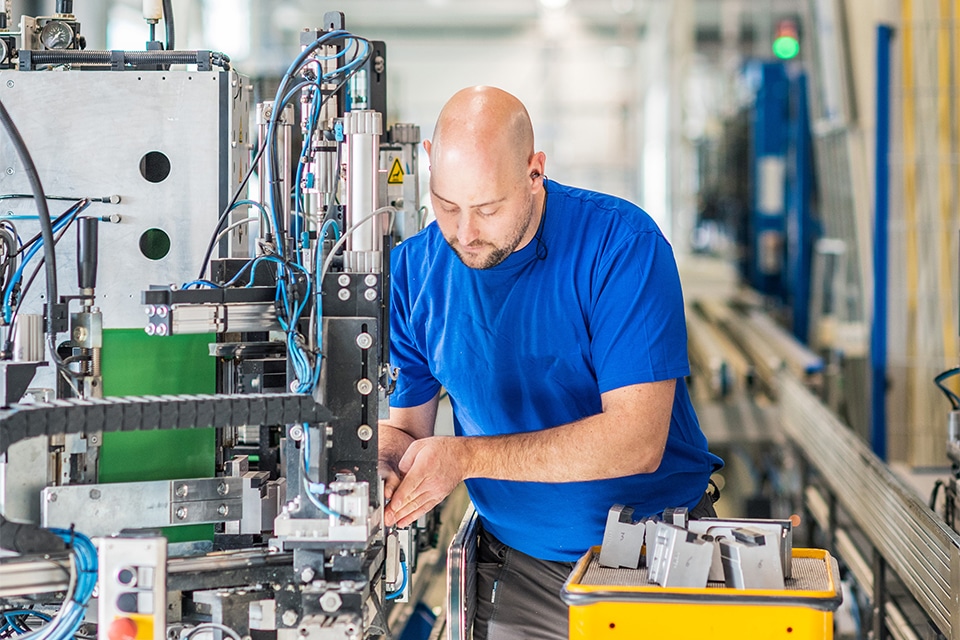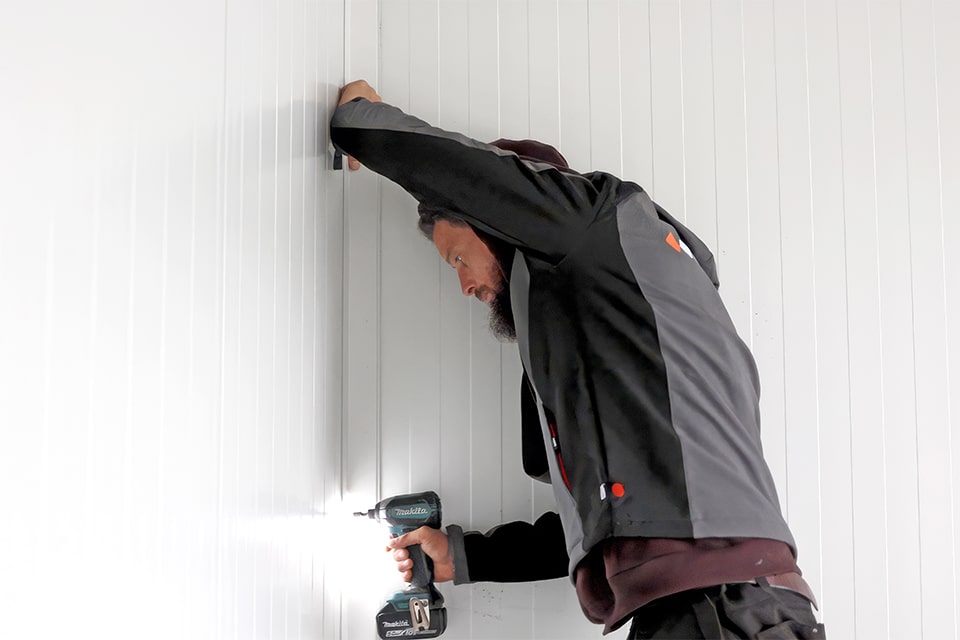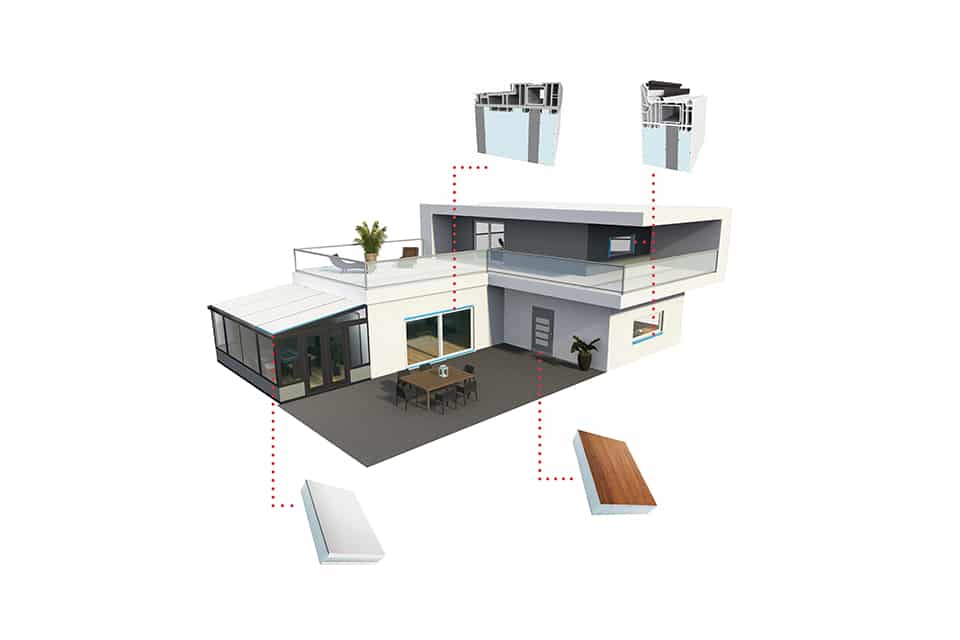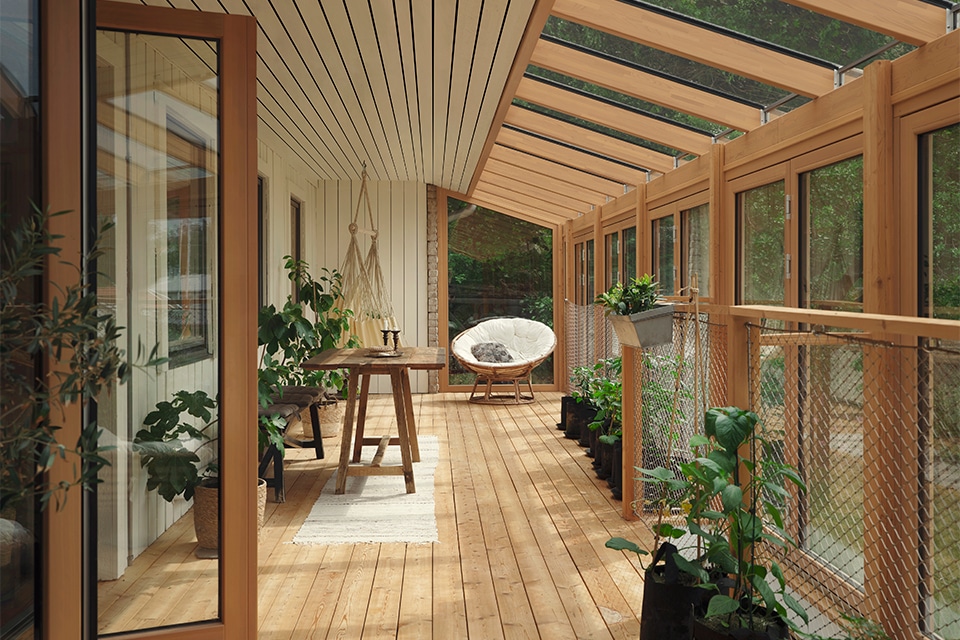
40 percent smaller carbon footprint than tropical hardwoods
FSC-certified plantation wood for (folding) walls and sliding doors
Solarlux is known for its glass folding walls, modular balcony glazing and aluminum sliding doors that embellish numerous prestigious projects and increase living comfort. But solid laminated wood is also no unknown material for Solarlux and has been used successfully since 1983. And for several years now, they have also been using Red Grandis, FSC-certified plantation wood with a 40 percent smaller ecological footprint than tropical hardwood. The solution to really make a sustainable impact. Together with architect consultant André Jansen we discuss the new trends and innovations.
In the folding wall category, Solarlux offers a variety of options. "We produce folding walls in aluminum, in wood and in a combination of wood on the inside and aluminum on the outside," says Jansen. "With our SL97 (wood-aluminum combination) we are even heading toward the standard for passive houses with a U-value of under 0.8 and with triple glazing even 0.5. Wood is by nature a warmer material and a high-quality insulator. Wood also lends itself extremely well to interior walls and we use it extensively in our soundproof partition walls for multifunction centers, public buildings and schools."
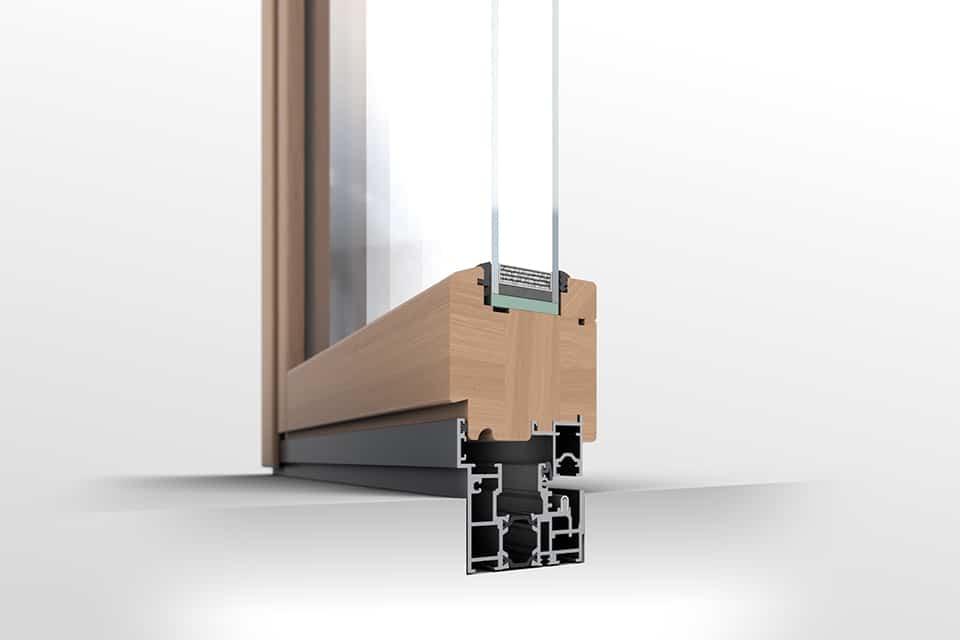
High quality
Solarlux generally uses spruce or pine. "For large spans, for example for our conservatory roofs or patio covers, the spruce or pine is laminated, or we choose oak. It just depends on what look the customer wants," says Jansen. "At the moment we are working on a couple of nice projects in the Netherlands for which we are producing folding walls of the Woodline type in solid wood. This is also available in a combination of wood and aluminum as combiline. And so we offer something for everyone, matching the intended appearance and with the well-known high Solarlux quality. With our folding walls in wood, for example, we go much further than a regular joinery."
Jansen is referring to width, height and number of wings. "For example, we recently made a wooden folding wall for a pool house with 33 wings! It functions effortlessly." Quality is also in the workmanship. "Every product in wood is delivered on site completely painted, including behind the glazing bar in the rebate. And the cavity is ventilated so that no wood rot or mold occurs there either. Typical Solarlux."
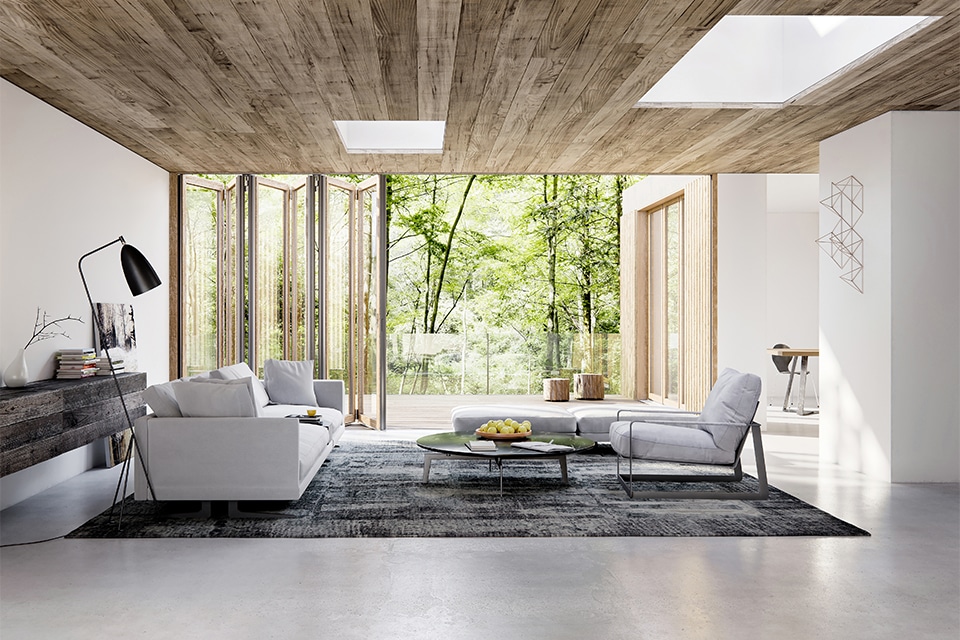
Red Grandis
For several years, Solarlux has been using a relatively new type of wood called Red Grandis. "When you talk about sustainability and CO2 emissions, that's definitely a topper," Jansen knows. "The wood is harvested in Uruguay where a forest of fast-growing Eucalyptus trees has been planted on a 70,000-hectare plot of former pasture land. The trees are mature and ready for harvest within 22 to 25 years. Sheep, cows and horses roam freely in the area and graze on a natural new planting path, avoiding compaction and stunting growth. Furthermore, no chemical pesticides are used, as the forest is not of interest to pests. And thanks to the unique climate, there is naturally enough water for the forest to grow. Add to that the fact that the logs are processed on the same site, with a windmill providing electricity and wood chips and saw residue being used to fire up the kiln, and it results in an ecological footprint that makes you happy."
According to Jansen, Red Grandis has a 40 percent lower carbon footprint than tropical hardwood, while its technical properties are similar to oak. The plantation wood can be used for many purposes. 210,000 cubic meters of Red Grandis are harvested annually. "It is solid wood that we use for our folding walls, lift-and-slide doors, panel walls, conservatory roofs and patio covers, among other things. In short, if you really want to make an impact in terms of sustainability, Red Grandis is a very interesting product. It is solid wood, FSC-certified and, depending on the surface treatment, approaches the appearance of any other type of wood."
Heeft u vragen over dit artikel, project of product?
Neem dan rechtstreeks contact op met Solarlux.
 Contact opnemen
Contact opnemen
